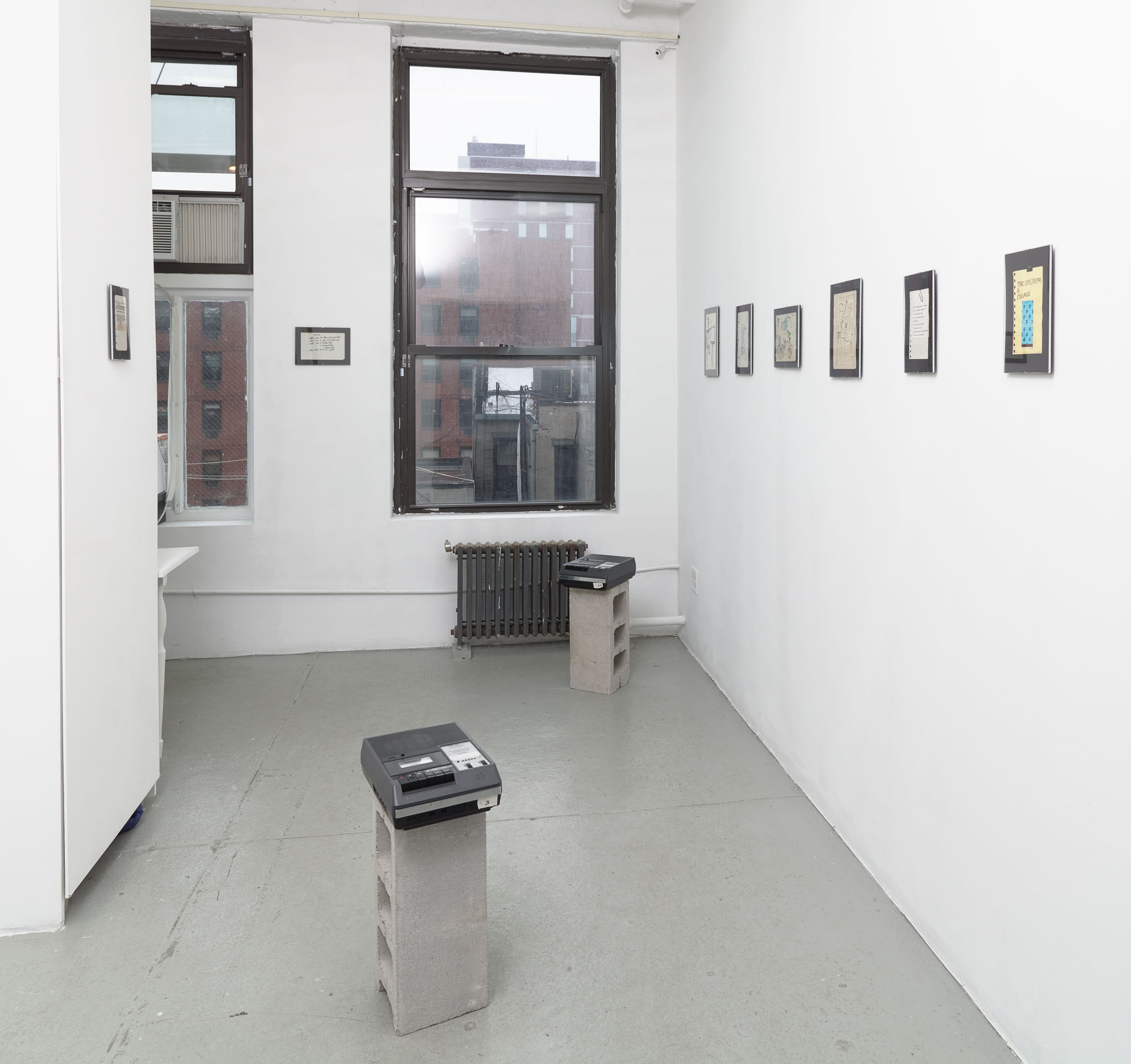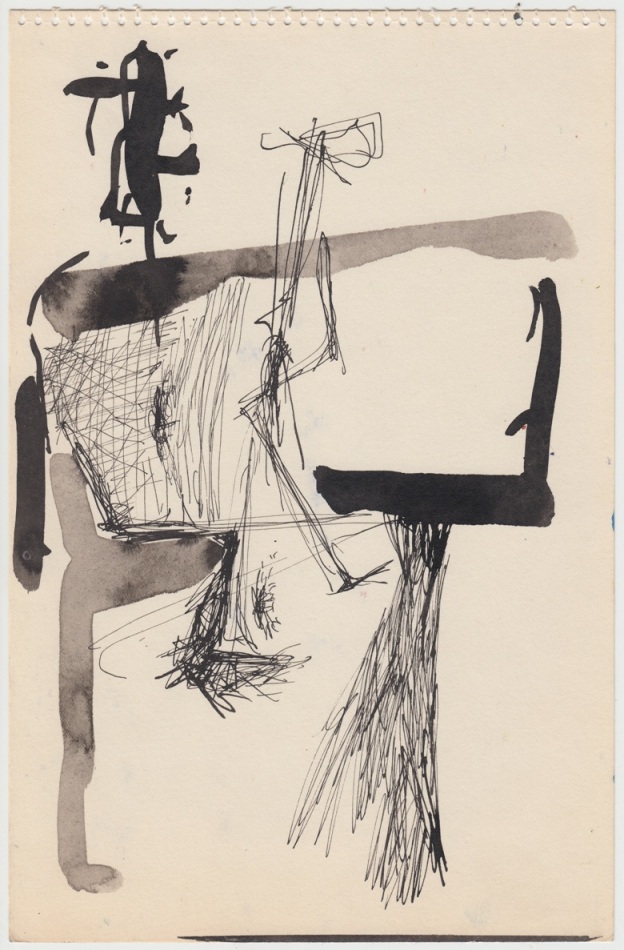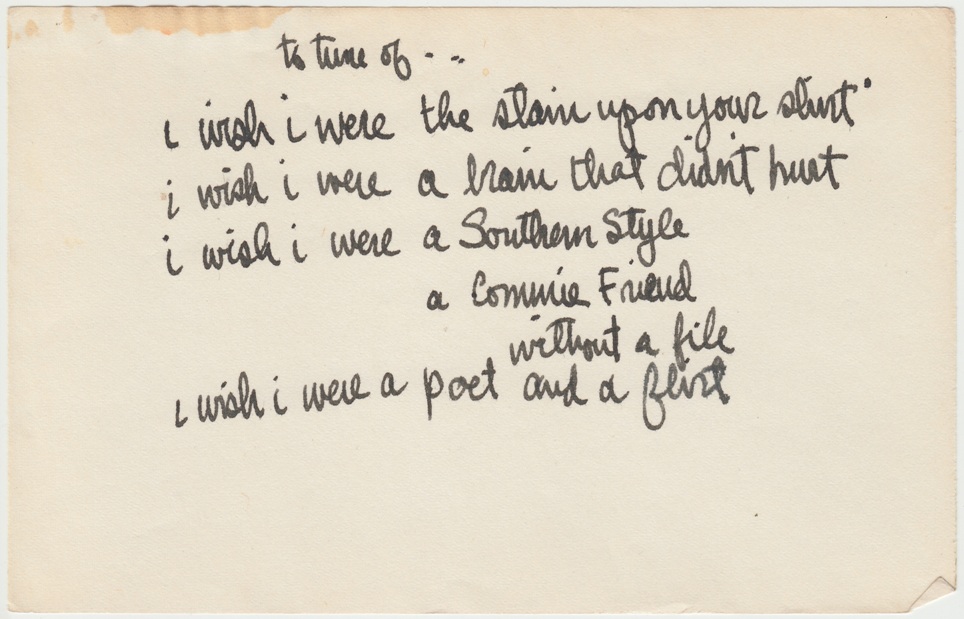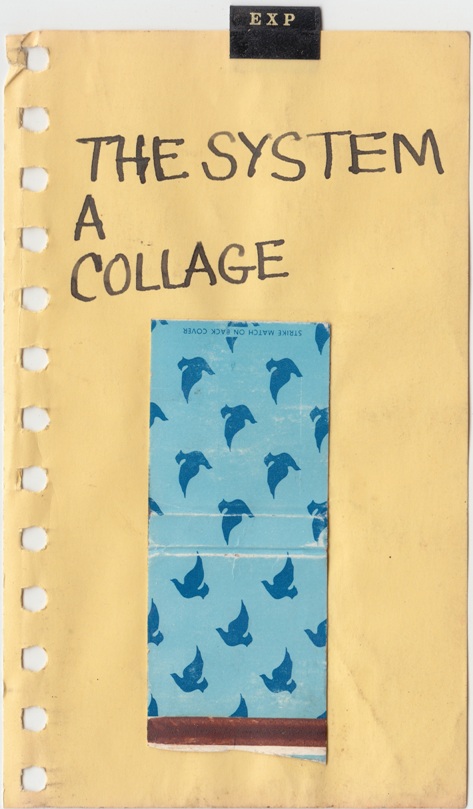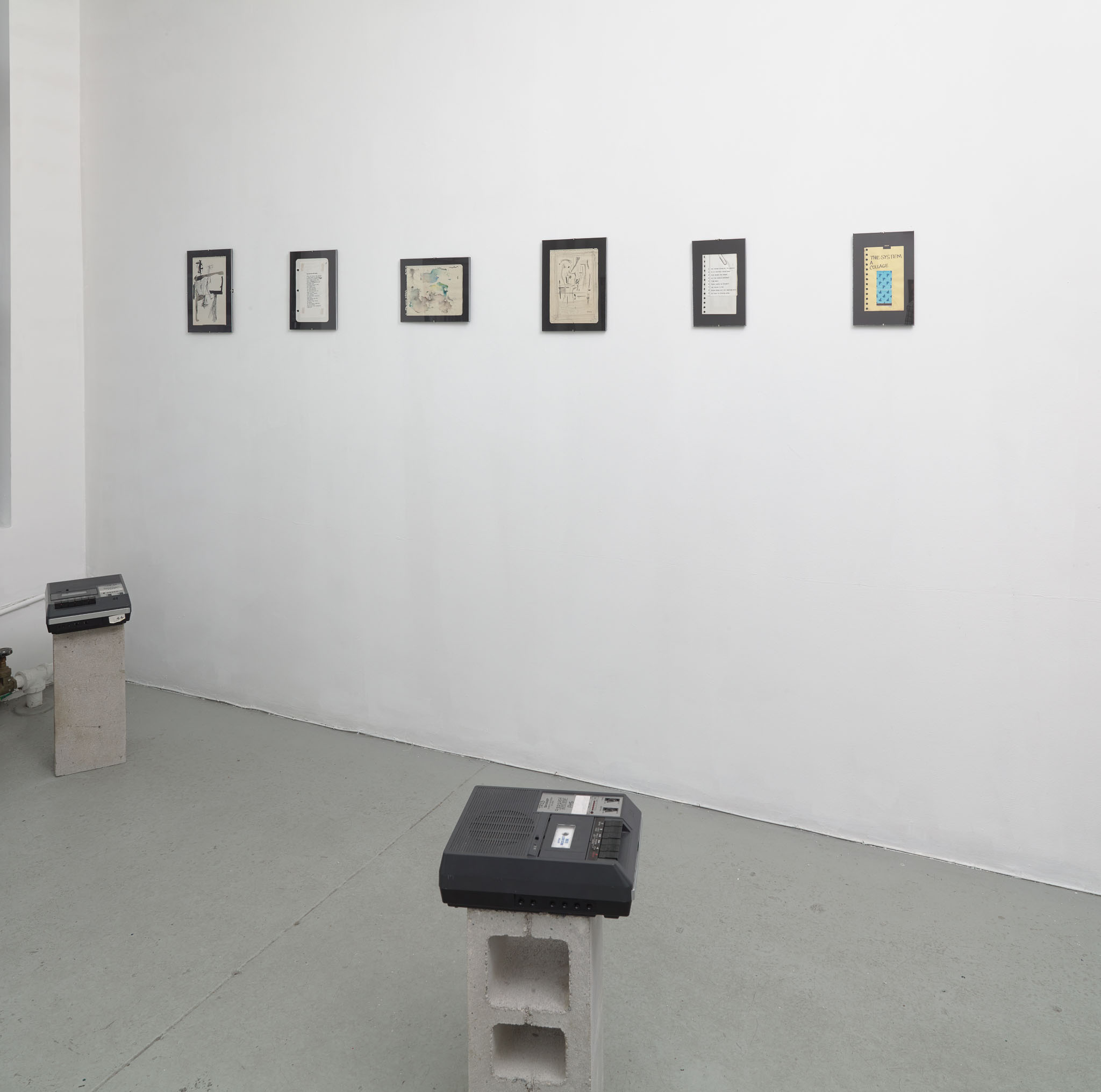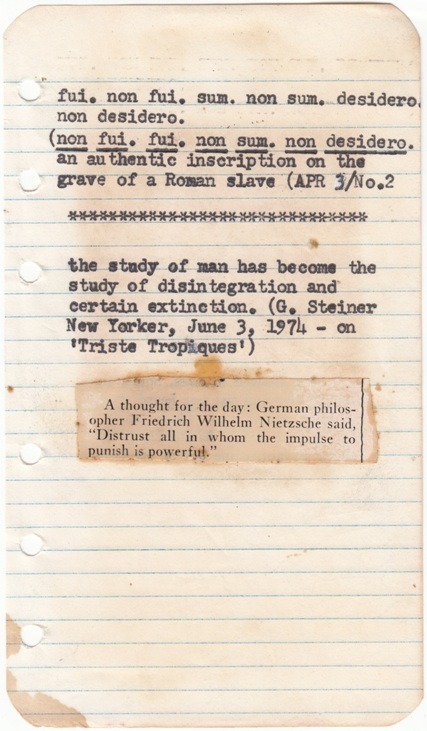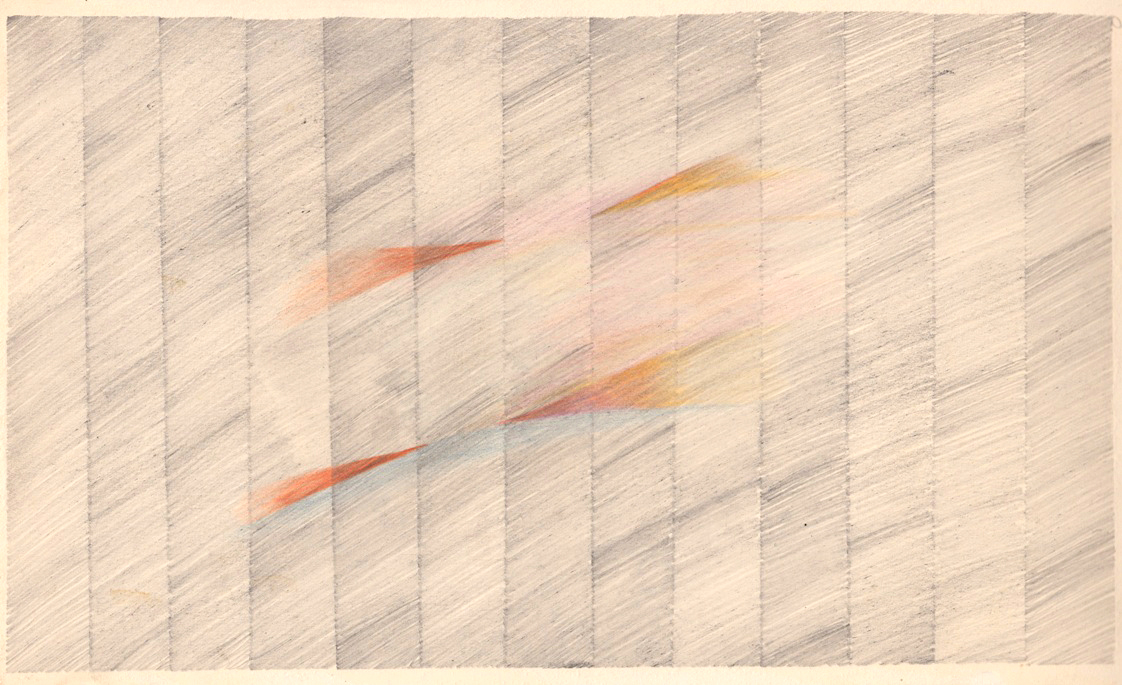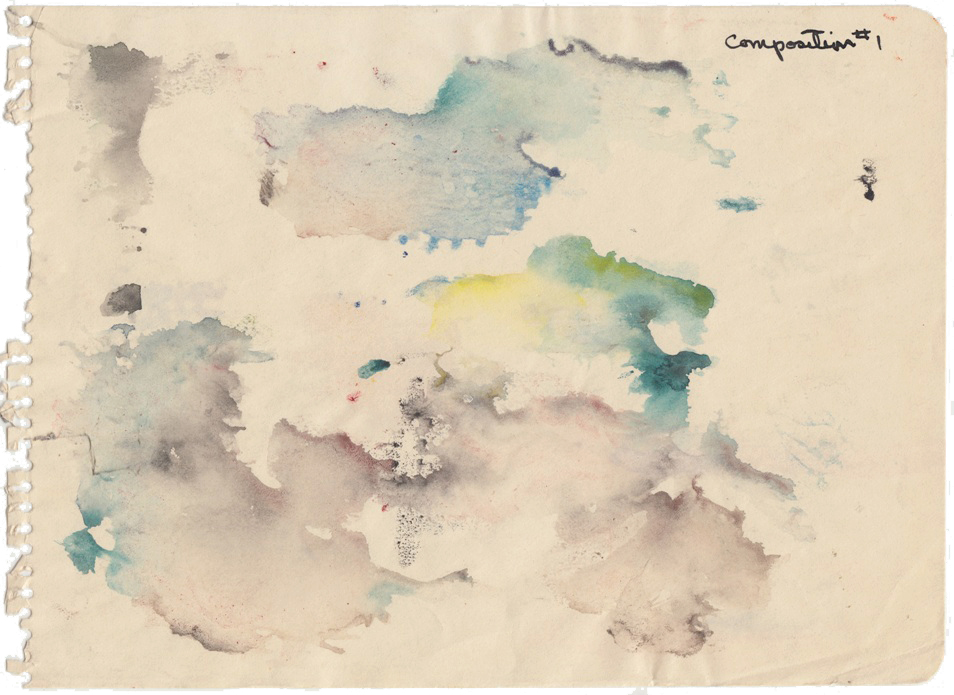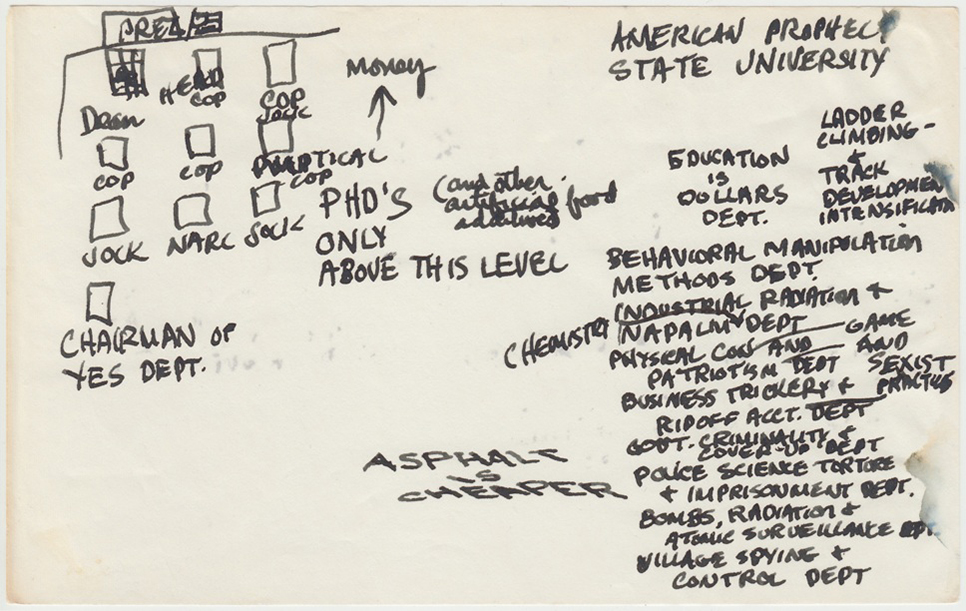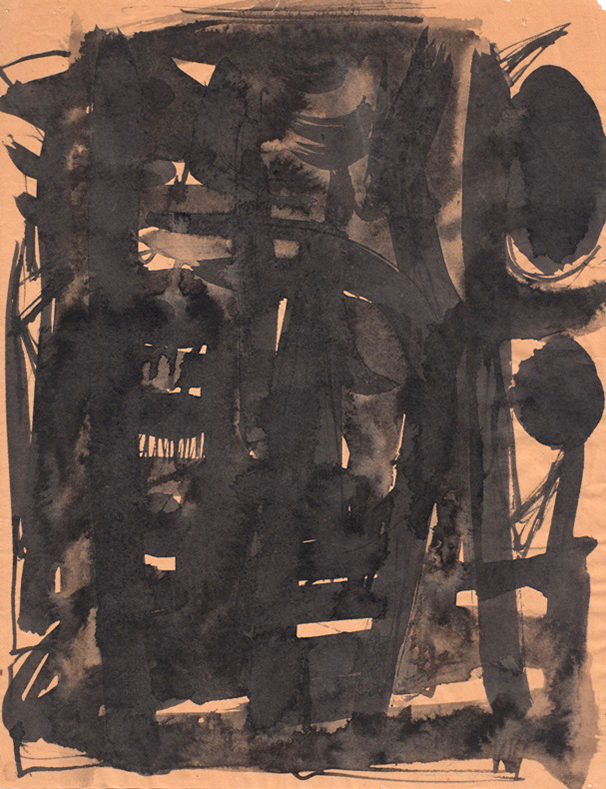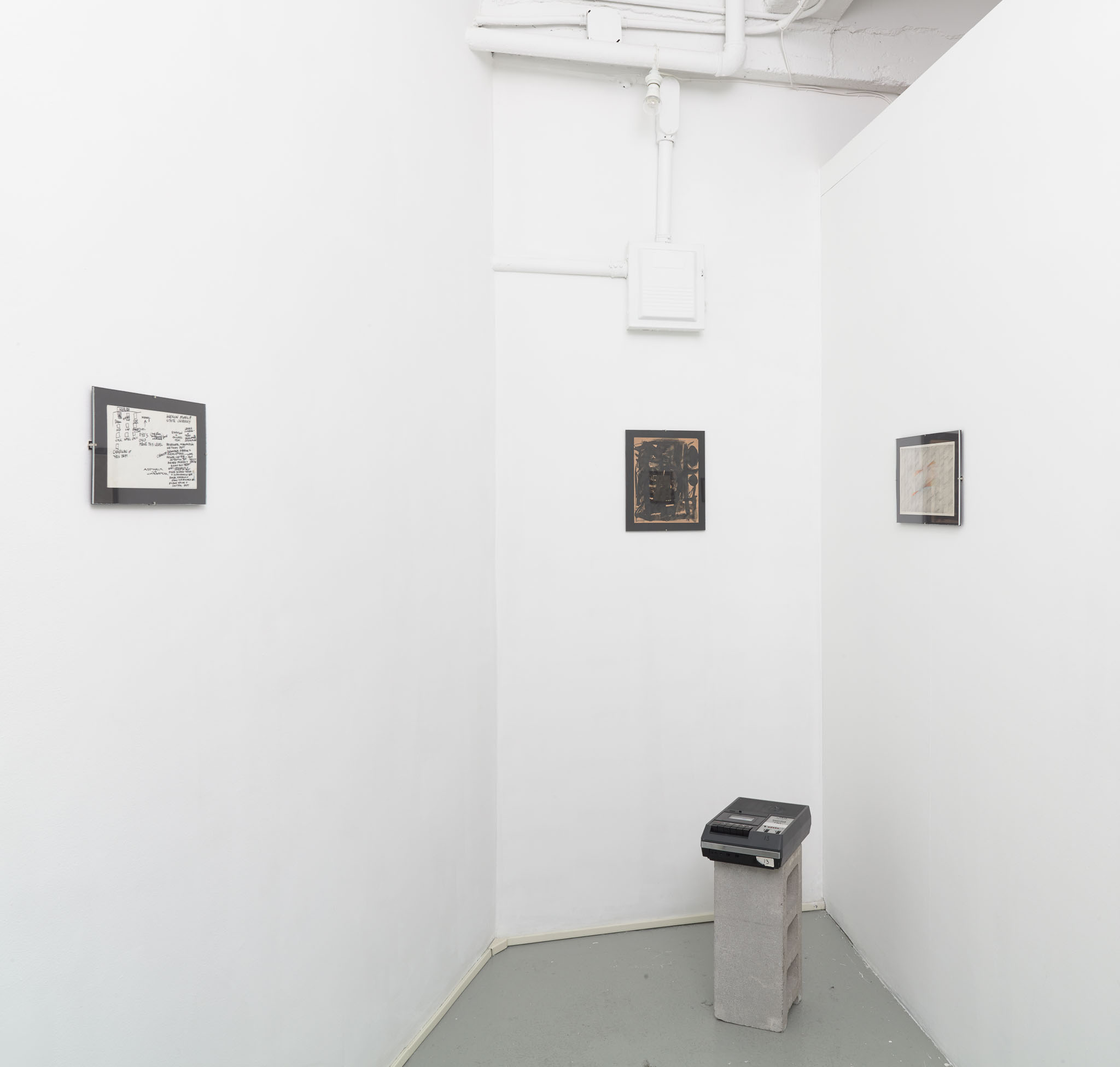MALCOLM McCLAIN: VISUAL, TEXTUAL
In Collaboration with Dave Hampton
March 14 - April 18, 2015
The gallery is pleased to present "Malcolm McClain: Visual, Textual," a solo exhibition of works on paper by the late Malcolm "Mac" McClain (1923-2012). This exhibition is organized in collaboration with independent curator Dave Hampton and marks the first time that a range of drawings, collages, paintings, and poems, made by the southern California artist between the late 1940s and late 1970s, will be shown in New York. A multi-part sound installation featuring McClain's texts, produced by the acclaimed musician Charles Curtis, will play throughout the exhibition.
Malcolm McClain's small-scale works on paper, incorporating type-written, collaged, drawn, and painted elements, provide an intimate view into the artist's approach to making art with both images and words. A key figure in the late 1950s San Diego art and poetry scene, McClain was part of group of artists such as John Baldessari, Guy Williams, and Richard Allen Morris, who wrote poetry and made paintings. Embracing both mediums as forms of artistic expression, for McClain, painting, drawing, and writing often shared similar objectives within his practice. As Hampton has noted,
He filled intimate notebooks with typed texts, hand-written poems, clippings and commentary, along with curious collages, delicate watercolors, and bold, inky brushwork. Some of his texts
may be appreciated for their strongly visual qualities, while at times his drawings rely on words to complete them.
Serving in the US Army Infantry during World War II, McClain returned to New York in 1947 where he studied painting at the New School, later traveling to Mexico and California to pursue a life as an artist and teacher. Themes of censorship, human extinction, and freedom of expression, as well as the relationship between bodies of power and the individual recur throughout McClain's works. Having survived the brutality and horror of fighting on the front combat lines, art provided McClain a means of coping with undiagnosed PTSD, and much of his written work takes a vigorous antiwar stance.
A 2014 sound recording created by the San Diego-based cellist Charles Curtis will play on five cassette decks, dispersed throughout the gallery, and features a variety of voices reciting McClain's texts. Encountering McClain's works on paper for the first time, Curtis decided to register in the sound piece the prima facie experience of grappling with McClain's handwriting and typing, so he recorded the voices of the readers while they recited the unfamiliar texts at first glance.
Malcolm McClain (1923-2012) was born in Los Angeles, CA. Following his service during WWII, he painted and wrote poetry in Paris before enrolling at The New School in New York, later moving to Mexico City. After graduating from Pomona College in 1955, he enrolled in Peter Voulkos' landmark ceramics program at the LA County Art Institute. Living in Tijuana during the late 1950s, McClain landed his first teaching position at the Art Center in La Jolla. He later settled in the art department of Cal State Los Angeles, where he taught from 1965-1988 while also publishing poetry and occasional articles and reviews under the pseudonym "Mac McCloud." McClain also served as Dean of the School of Arts and Letters at Cal State Los Angeles, where a scholarship has been created in his name.
Recent exhibitions featuring the work of Malcolm McClain include "San Diego’s Craft Revolution: From Post-War Modernism to California Design," Mingei International Museum, San Diego, CA, 2011-12, "Common Ground: Ceramics in Southern California 1945-1975," American Museum of Ceramic Art, Pomona, CA, 2011-12, and "Contemporary Art Wins a Beachhead: The La Jolla School of Arts 1960-1964," Oceanside Museum of Art, Oceanside, CA, 2012. His pottery and sculpture were featured in the seminal exhibition "Abstract Expressionist Ceramics" at the University of California, Irvine, in 1966, alongside Billy Al Bengston, Ron Nagle, Kenneth Price, and Peter Voulkos.

